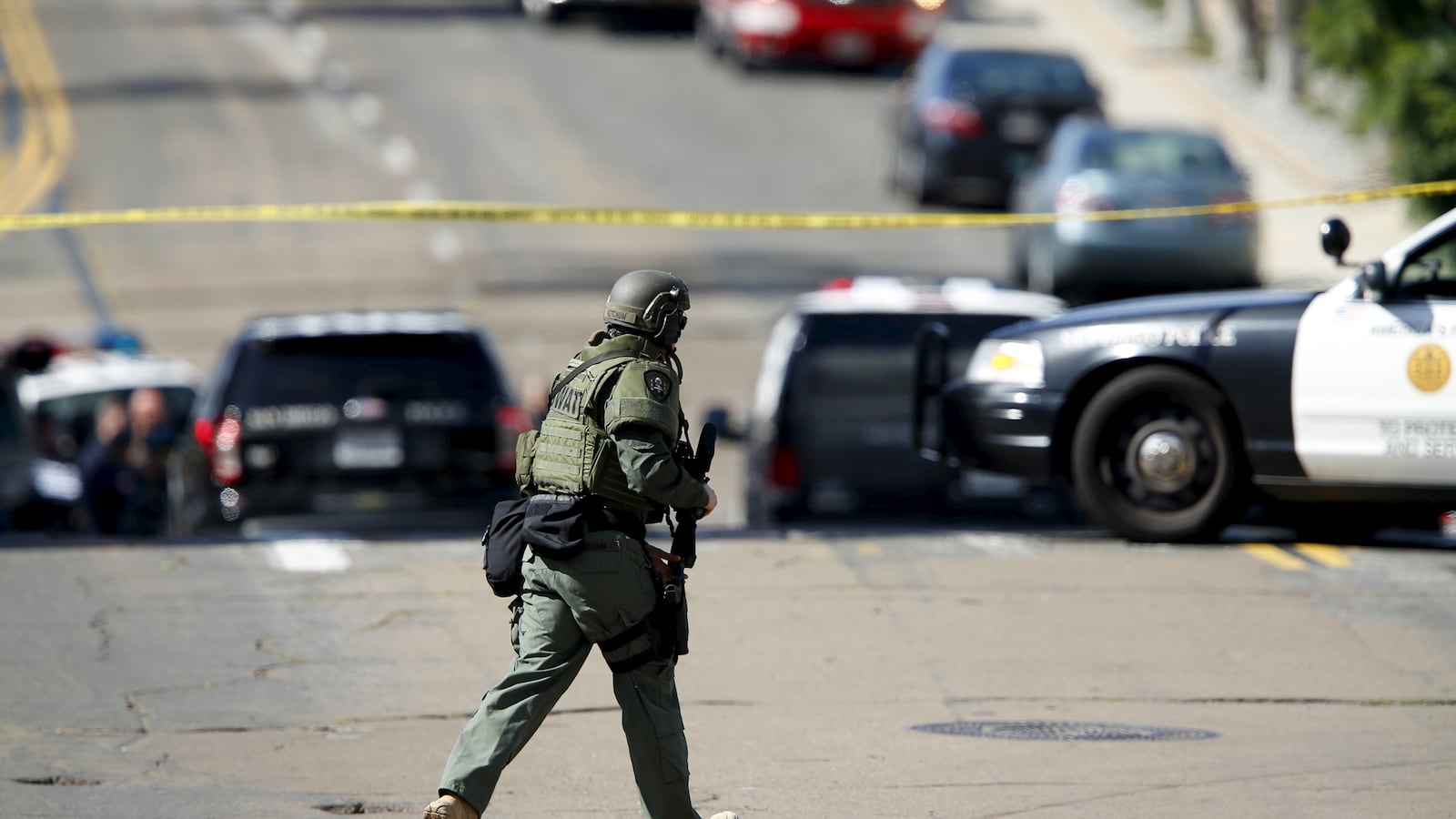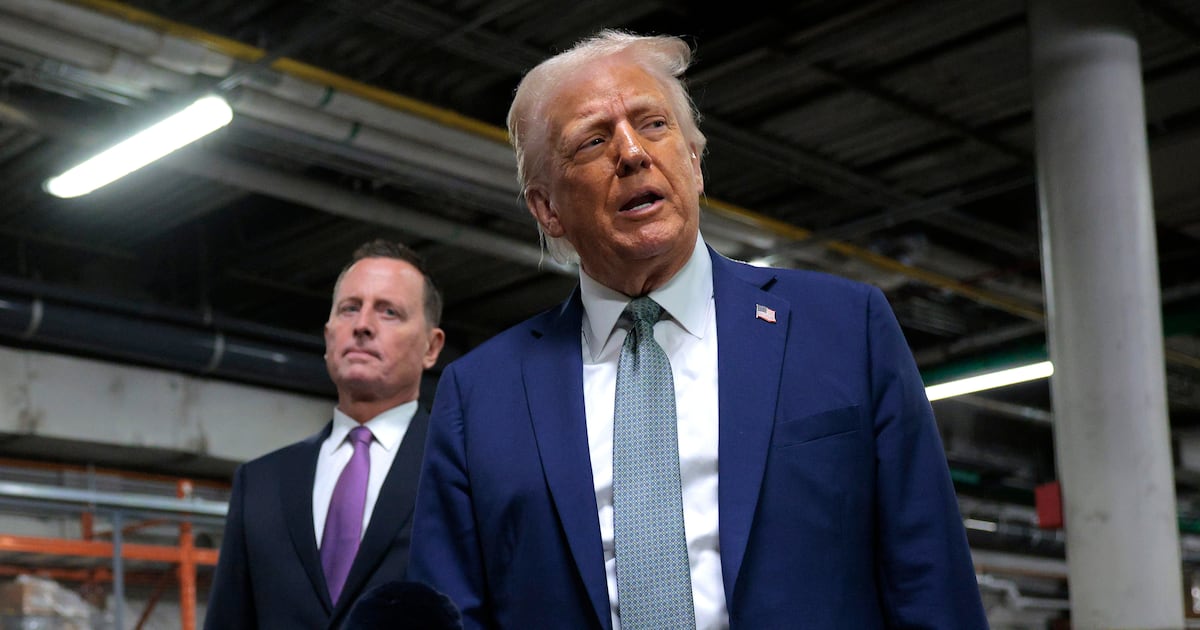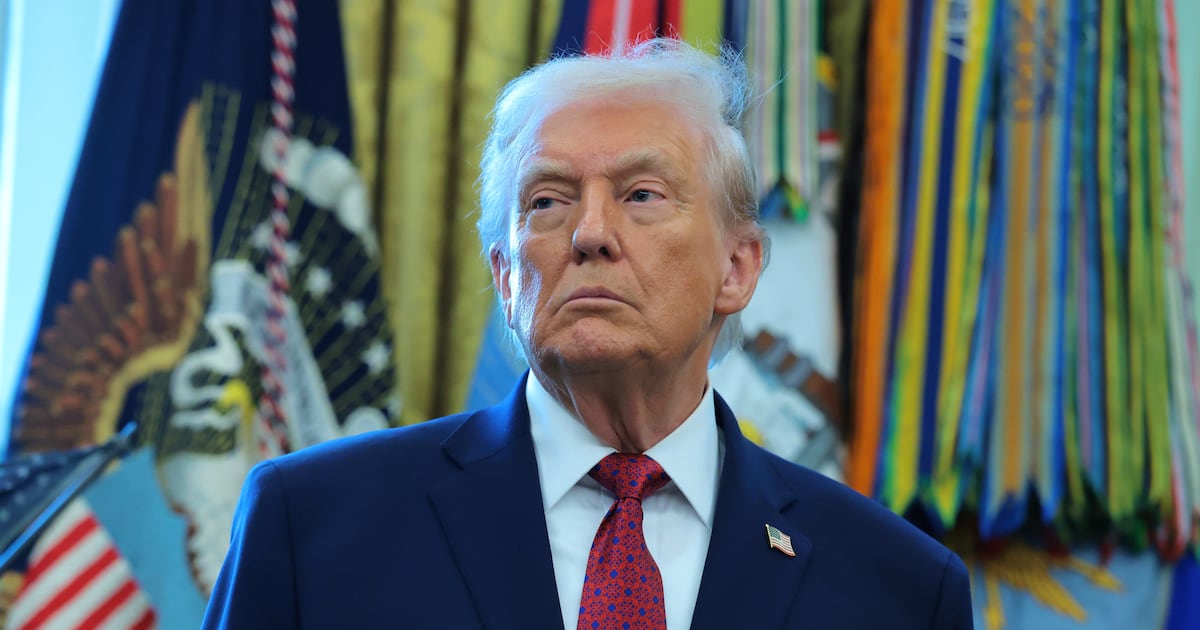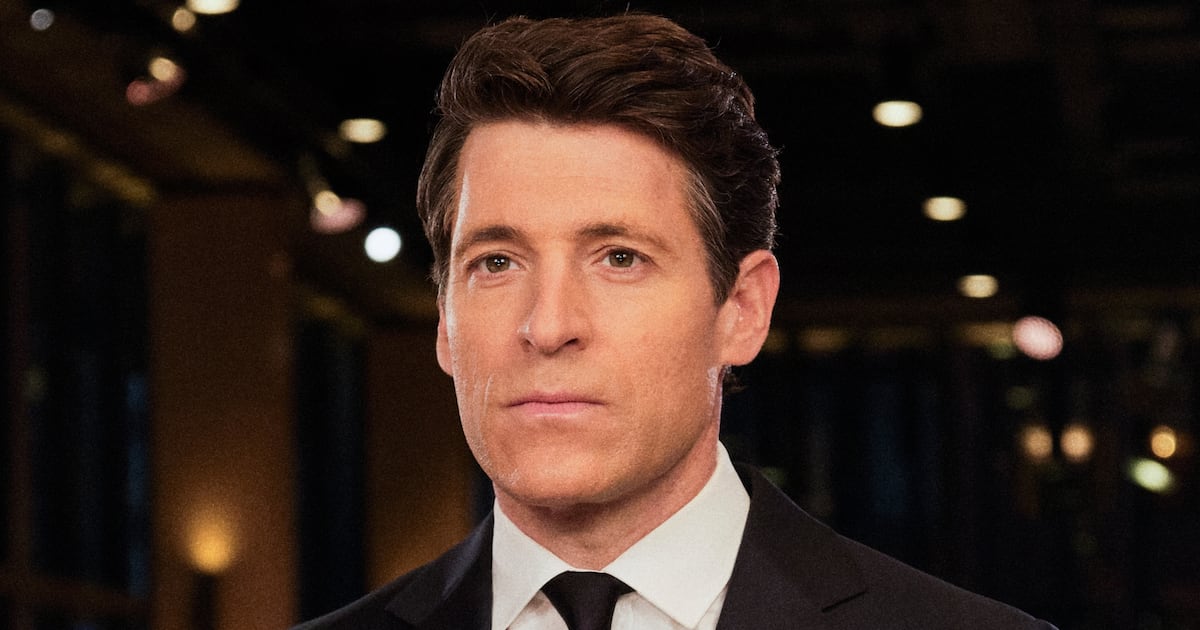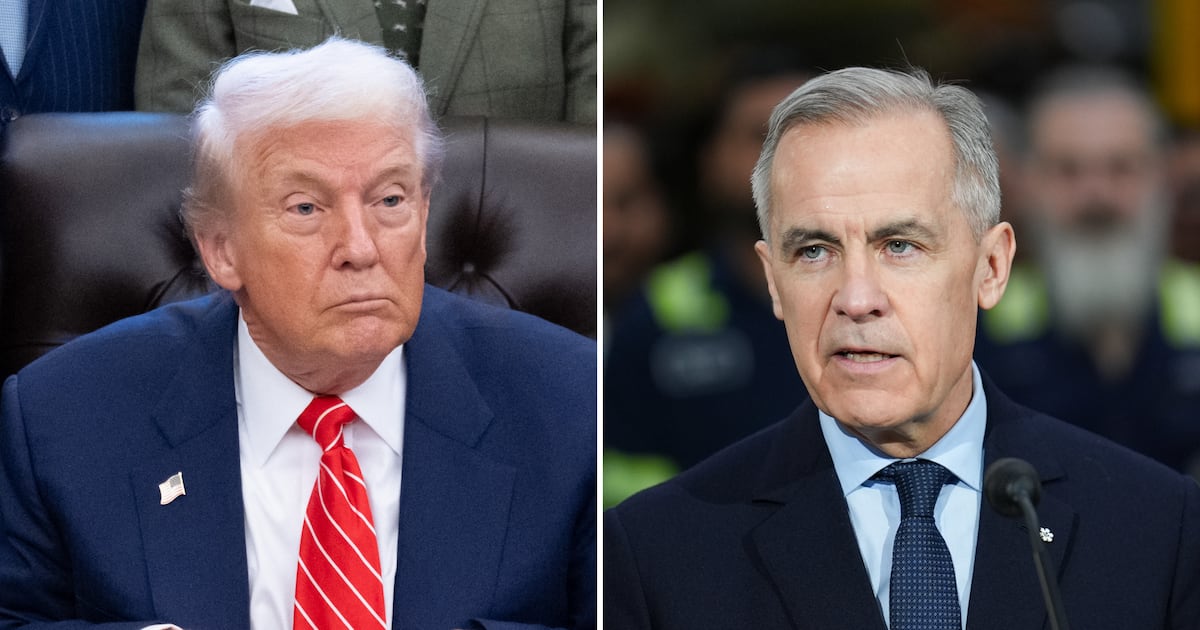Gun madness in America took another turn on Wednesday as the FAA issued a remarkable air-traffic alert.
“Arrivals to San Diego (SAN) suspended because of active shooter. Check flight status with your airline.”
The active shooter in question was 33-year-old Titus Colbert, a convicted drug dealer and gang member whose brother is on death row for a three-week crime spree involving multiple murders. Colbert allegedly fired through the closed front door when patrol officers responded at 9:10 a.m. to a report that he had entered his ex-girlfriend’s condo without permission. The rooftop residence happens to be on the flight path for planes arriving at San Diego International Airport.
The officer summoned backup, which quickly came to include SWAT teams that took position on either side of the bullet-riddled front door. Four sniper teams set up outside to cover the windows and a sliding door leading to a patio. The ensuing hours of radio transmissions told the tale of what followed.
“Has anybody seen movement inside?” a cop inquired over the air.
“You should have an updated photo of the suspect on your cellphones,” a supervisor said.
Other cops tried to contact Colbert.
“Making phone calls in to the suspect, getting no answer,” a cop reported.
Colbert then answered his cellphone.
“Picked up once, a lot of gibberish,” the phone cop announced. “He said, ‘Just kill me now.’”
Colbert had then hung up. The cops tried calling back.
“Going to voice message,” the phone cop reported.
The cops kept trying and Colbert again answered.
“Suspect on the cellphone,” the cop radioed. “He’s telling something about a new world and he wants to go to Australia.”
A robot was deployed to allow the cops to watch the front door without exposing themselves to the possible line of fire. The phone cop then radioed, “The suspect stated… he’s tired of being disrespected.”
A cop announced, “We just heard an 11-6 inside.”
That’s the code for a discharging firearm.
“It came from the back window, it would be opening No. 3,” a cop said.
The cops had assigned numbers to the windows.
“The shot came out the bedroom, out No. 3, the round in our general direction… We need to work on getting gas in that bedroom window… There’s somebody on the rooftop who might be able to deploy gas through that bedroom window.”
A supervisor asked the cops on an adjoining building if they could do it with a 40-millimeter tear gas grenade launcher.
“Yes, sir, we can,” a cop radioed back. “It’s just a long shot. It could take a couple of shots.”
“Go,” the supervisor ordered. “Go ahead and put a volley through there.”
The cops who had Colbert on the phone gave an update.
“On the phone [the] suspect said if we put more gas in, something bad will happen. Then the line cut off.”
“We had another shot from inside,” a cop reported.
“Continue with the gas,” the supervisor instructed. “Good shot through the window.”
The snipers were asked if they could see anybody walking around inside.
“Negative,” one replied, adding, “If you put more gas through that window it’ll bring the shades down and we’ll have a better view.”
The command center then radioed an order.
“Unless he is actively surrendering, he is to be shot at the next opportunity. Repeat, if he is not actively surrendering, he is to be shot.”
The cops working the phone issued another update.
“We have the suspect on the line right now. We’re telling the suspect to surrender. We’re telling him to come out the front door with his hands in the air.”
One of the SWAT teams in position outside the apartment radioed, “We’re prepared. Have him walk out and come to his right. I’ll verbally address him.”
A SWAT team member said, “If he comes through the door armed, he will be shot. He must be sure not to have a weapon when he opens the door.”
The phone cop reported. “We are reiterating several times he is to go to that front door with no weapon.”
The radio went silent for a long minute or two.
“We’re still trying to get him to the front door,” the phone cop then said. “He says he wants to give up.”
Colbert was apparently feeling some effects of the gas.
“He has some discomfort, that’s why he wants water,” the phone cop said. “He says he’s taking his knife off his belt and he sounds like he’s about ready to come out.”
But Colbert must have turned back toward the bedroom.
“He just threw something out the No. 3 window, possibly a pillow,” a cop reported. “He’s thrown more items out the bedroom window.”
A phone cop said, “We’re trying to tell him not to throw anything else out the window and not go to the window and go to the front door.”
A supervisor asked, “Do we have a sniper watching that window where he’s throwing things out so we can get up to make the shot?”
The phone cops said they had briefly lost contact, but were now back on, “Telling him he’s not going to be shot if he gives up. Is there a safe way for you to give him verbal commands?”
One team said, “In the stairwell level, we’re not in a good place to do that. We only have one place of cover.”
The other teams said, “That’s going to give him a bearing on where we are... If he’s that worried, have him strip down to where there is nothing…”
A cop reported that Colbert was continuing to toss things out window No. 3.
“One of them was a handgun and it hit the balcony of the floor below and it went off,” the cop noted.
A supervisor again inquired, “Does the sniper have an eye on him when he’s throwing things out the window?”
A sniper said, “We can’t see him.”
The phone cops reported, “He says he’s coming to the front door.”
Once more there was silence.
The phone cops then said, “Suspect seems to be hung up on—we’re going to shoot him if he comes out the front door—and for some reason he needs reassurance.”
The phone cop said, “Sounds like he could be close to the front door.”
A sliding glass door toward the back of the apartment was shattered. A cop proposed sending a robot in through it.
“You’re approved to deploy it,” a supervisor said.
The cop with the robot asked the snipers to cover him.
“If you could keep an eye on the slider and I’ll let you know when we’re stepping out,” he said.
The phone cop came on, saying, “The suspect, he just confirmed the front door is barricaded… Unknown with what.”
Another cop said, “Have him come out the slider, then. It’s wide open.”
The phone cops said a few moments later, “Sounds like we got him to come out the slider.”
The robot cop said, “We’d like to deploy the robot.”
The phone cop said, “Do you want us to hold?”
The robot cop said, “You want to tell him not to come out the slider until we get the robot deployed; obviously, don’t mention that to him about the robot.”
The phone cop said, “We got him on the line. We’ll have him hold in place.”
A minute later, the phone cop came back on, “Suspect is off line, repeat off line. Last instruction he was given was to remove the barricade from the front door. Not sure if he was going to do that or not.”
In the next moment, the phone cop said, “He’s on the line again.”
A supervisor now said, “Have him come out the slider unarmed. We have good view of him.”
The phone cops said, “He’s saying he’s removed all the stuff from the front door. Not sure if he did that.”
The supervisor said, “Well, attempt to have him come out the slider right now. He’s not being very cooperative.”
A K-9 unit had been present from the start. The phone cop now said, “He’s expressed concern about the K-9. He does not want to be bit… He seems to have focused on the front door, so we’re trying to get him to come out the front door at this time.”
A supervisor came on with a new instruction.
“All units, the use of force is in play, but he is not to be shot when you see him. We rescind that order.”
A cop asked what should be done if Colbert emerged from the apartment unarmed and then tried to go back in.
The answer was, “Rules of engagement, if he does come out it doesn’t matter if he’s armed or unarmed, he’s not to be allowed to go back in.”
The cops were now to begin with non-lethal measures, escalating to K-9 before employing deadly force. A cop inquired about an earlier report that Colbert was also armed with an assault rifle.
“Can you confirm what kind of weapons he’s armed with?” the cop asked.
The phone cop reported, “He says he has no more weapons. We’re trying to confirm that now.”
The phone cop added, “He continued to express concerns that nobody on the scene is going to listen to him and is going to shoot him.”
A bullhorn with a microphone on a cord was delivered so the cops at the scene could communicate with Colbert directly without leaving cover or giving away their positions.
Colbert said he thought his phone was dying and the cops lost contact with him. They were preparing to toss him a “throw phone,” when the 911 emergency dispatcher reported that he had called her.
“He’s going to give up, but he says he’s confused,” the dispatcher said.
“Please have him hang up,” the phone cops said. “We’ll try to call him now.”
The phone cop then reported, “We have suspect back on line. He says he can hear the bullhorn.”
The radio went silent again.
The phone cop said, “Still have suspect on the line. No new information as far as weapons go.”
A supervisor asked the snipers if they would be able to take action if Colbert attempted to fire upon aircraft passing overhead.
“Yes, if he were to pop out on the roof to fire at aircraft we could handle that from here,” a sniper replied.
The cops on the phone continued to urge Colbert to strip down and come out the front door with his hands empty and raised. He continued to balk. A supervisor ordered another, more intense barrage of gas fired through all the windows.
“All chemical agents have been dispatched,” the supervisor announced.
The phone cop reported, “S1 [Suspect 1] is still on the line. He’s saying he’s going to surrender… He continues to ramble. The gas does not seem to be having more ill effects on him. He coughs occasionally, but other than that it doesn’t seem to be bothering him.”
Colbert then told the cops the door was broken. The cops again instructed him to go out the slider.
“From the information we’re getting we think he’s inside his bedroom and his saying the bedroom door is broken,” the phone cop said.
The phone cop reported that Colbert seemed to have gone into the bathroom.
“We had him turn the sink on so we confirmed he is near a sink so we believe he’s in the bathroom,” the phone cops said. “It sounded like water was running.”
Then came noises that suggested Colbert was attempting to open the bedroom door.
“Sounds like he’s having some issues,” the phone cop said.
A supervisor consulted with one of the sniper teams.
“Would you be able to see him if perchance he tried to low crawl out that sliding door?” the supervisor asked.
“Probably not,” a sniper said.
The phone cops came on the air with some unsettling news.
“S1 is telling us now he has a rifle inside… And he wants to throw it out the window. We are telling him not to do that.”
Another cop disagreed.
“That would be helpful if we got rid of that in case he changes his mind,” the cop said.
“You want him to toss it out any particular window?” the phone cop asked.
“If he is locked in that bedroom, it’s going to be that same one he tossed out the handgun,” a cop noted.
“We are telling him to unload the rifle,” the phone cop said. “Not sure if he’s doing that.”
“A sheet or a rope, maybe he could lower it,” a sniper suggested.
“We’re trying,” the phone cop said. “It’s a lot to get the rifle out the window.”
“Tell him butt first,” a cop said.
“He says he’s unloading the rifle at this time,” the phone cop said. “He’s going to throw the magazine out the window first.”
“The magazine came out,” a cop reported. “And the rifle’s out.”
A supervisor said, “Just to confirm the rifle came out.”
“10-4, we saw the rifle come out,” a cop said.
The phone cop said, “Suspect is bringing up the possibility of a ladder coming up to that window where he could come out.”
That would have required cops to leave cover while setting a ladder to a window at a perilous height that still had shards of broken glass.
“I would say no,” a supervisor said.
“It is a negative, and I’ll let him know,” the phone cop said.
One of the snipers soon after reported, “We have the suspect moving around the room, banging and yelling… he was doing something with the door.”
The phone cop reported, “He says the door is open now.”
There was silence yet again.
Now came the announcement that everybody had been waiting to hear.
“The suspect is in custody.”
The time was 2:40 p.m. The standoff had gone on for more than five hours. Two nearby schools had been locked down. Dozens of flights had been diverted, delayed, or canceled. The FAA now issued a second traffic alert.
“Ground stop lifted @ San Diego Airport arrivals resuming. Check with your airline as residual delays are expected.”
Everything returned to normal, or at least as normal as it can be when just about anybody can get their hands on a pistol and an assault rifle.

